Biography
Romantic, hiding in dreams, loving, but not able to do good. Quick, capricious, frivolous lazy. Not knowing how to choose and form your environment, easy to influence. Little personality, and even more so owning the throne of the state, combined such contradictory characteristics. According to contemporaries and historians, the biography of the Great Princess Anna Leopoldovna is a direct illustration.Childhood and youth
Anna Leopoldovna, nee Elizabeth Catarina Kristina, Princess Mecklenburg-Schwerinskaya, was born in marriage of Peter I, Ekaterina John and Duke Karl Leopold Mecklenburg-Schwerinsky. It happened in 1718 in the German city of Rostock. The girl was baptized in the Protestant faith. Rodini in the princess was notable: Russian Empress Anna Ioannovna accounted for her aunt, along the Father's line in relatives, hurried German landscapes and princes were.
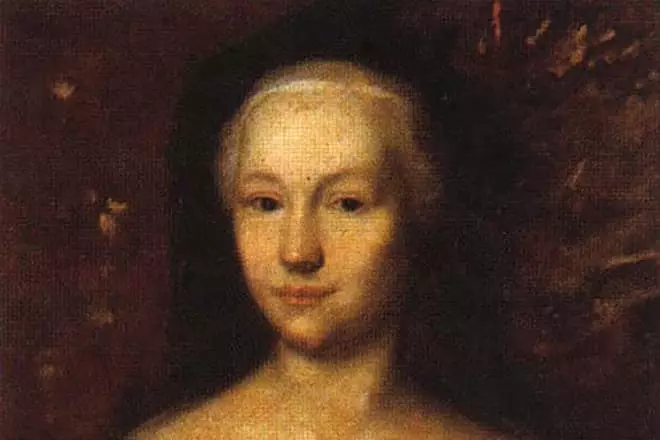
Family life from the parents of Elizabeth, people with different education, married forced, did not hold down, and the mother returned with the child to Russia than he accepted the Terrible Uncle Peter I. who came aside later on the throne, Anna Ioannovna practically took away his mother's daughter and began to raise heiress from her Russian throne. Appointed educators, servants and teachers, among which were the general widow and archbishop, dubbed in Orthodoxy, becoming a godmother, gave the name Anna, who knows the story.
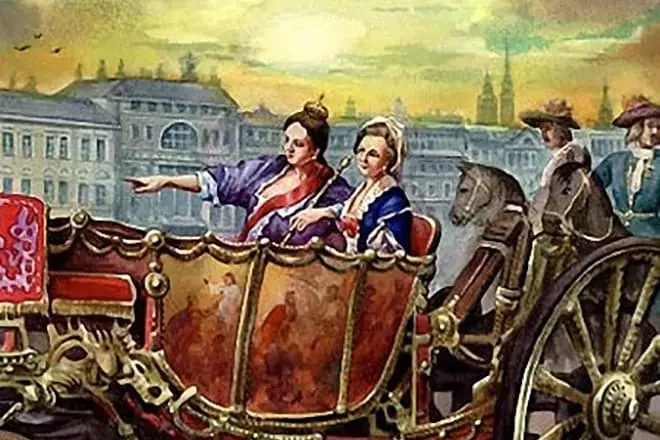
Anna was a typical product of salon education. A young woman did not interest state activities, work with documents tired. I did not perceive any work, including the mental, as if I flew in the clouds, but possessed a good temper. Anna Ioannovna subsequently began to see in Anna Leopoldna, only one destination is the birth of a son, from which a worthy heir will grow.
Politics
The Board of Anna Leopoldovna was not noted by any radical revolutionary transformations, unlike other state rulers. Having achieved power, the Grand Duchess led idle lifestyle. The favorite classes remained reading French novels and card games, pastime with a close friend Julia Mengden. Presenting the desire to manage the state did not undertake a decisive action, even with respect to the main competitor - Elizabeth Petrovna, for which he was paying soon.
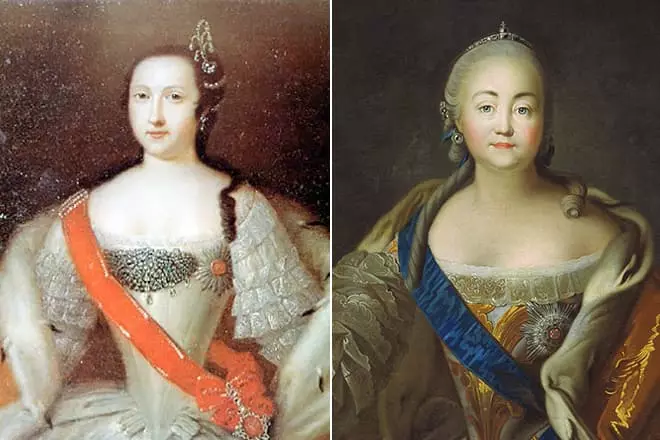
The internal policy of Anna Leopoldovna mostly concerned the proceedings, finance and industry. To get rid of bureaucratic Volokat, when considering complaints with the work of the Board and Senate, established the position of rektemester, which was intended to change the procedure for working with appeals, declared Senate and the Synod of the resolution and the will of the Soviet. Attention is drawn to delays in cases of consideration, measures taken to accelerate them. To streamline finances, the income and expenses are revised, the latter are reduced.
In the field of trade and industry, the charter of bankrupt and the regulations for cloudy and melted factories are published. Installed 15-hour working hours, minimal earnings, hospitals for workers are open. The princess made generous donations to the monasteries, forgave arrears in the treasury. Published decrees to regulate food prices and uninterrupted supply of cities in hunger conditions.
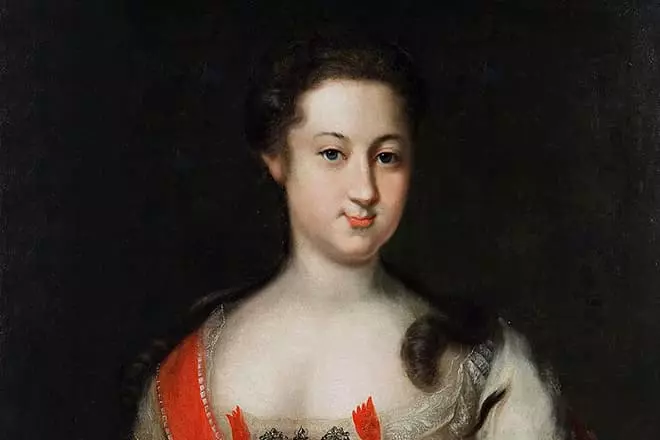
Reforms touched and management systems. The Cabinet of Ministers, headed by Count Andrei Osterman, who, with Anna Leopoldovna, became an admiral general and after the fall of the Count Buderman Christopher Miniha focused power in his hands. Local bodies should have been regularly reported to the Cabinet.
However, not internal, and the external policy was mostly occupied by the mind of the government. Osterman developed the first naval doctrine of Russia. Located in the combat-ready state of the Baltic fleet. Trading contracts have been concluded with Holland and England. Intected a police supervision for foreigners. The actions of diplomats lifted the threat of conflict with Turkey and Persia.
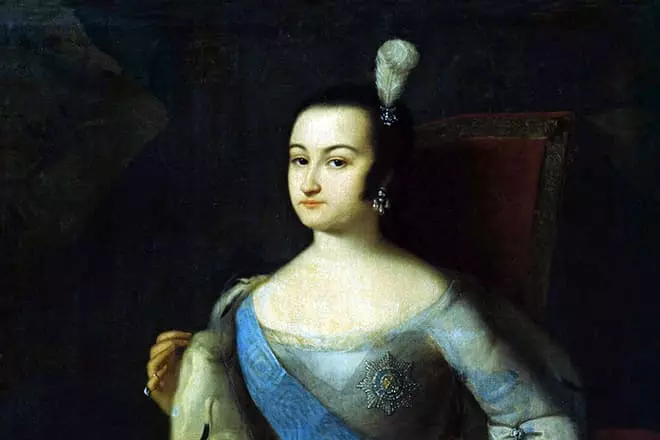
But at the same time, the sovereign failed to competently take advantage of Wilmanstrade victory in Finland. Despite the fact that Anna Leopoldovna's spouse from Austria, the rapprochement of Russia with this country was undesirable for Prussia, and for France. The latter eventually forced the Sweden to declare the war of Russia, which ended with the efforts of Elizabeth's successor. The Russian-Prussian Union Agreement is concluded, however, who did not meet the hopes imposed on him.
Personal life
Anna Ioannovna did not have children and was removed to get a niece of marry, in order to resolve the issue with the throne. From the list of candidates, the publicity attracted the prince of Anton Ulrich Braunschweig-Lüneburg. Anna Leopoldovna has not experienced strong feelings towards Austrian, because it was passionate about Count Charles Moritz Linar, a handsome, the full opposite of the future husband.
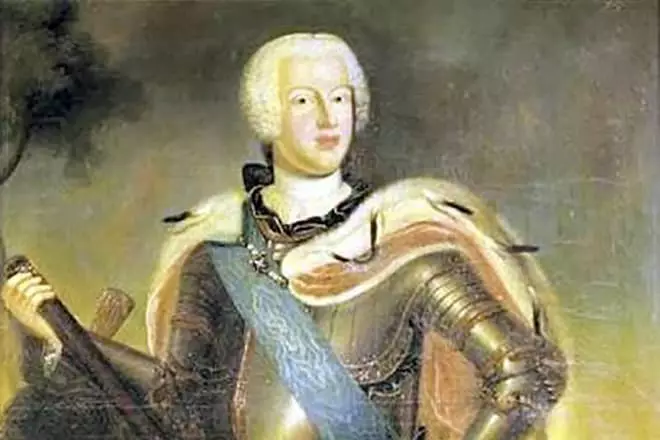
The princess was put under home arrest, dramatically limiting any communication. The marriage took place in 1739, and in the year the son was born in Anna, and the queen, finally, was published by Manifesto, in which his imperial highness Grand Prince Ivan Antonovich was announced by the heir to the heir of the Russian state.
The young child was required guardian, his native mother in this hypostasis was not considered. In front of the death of Anna Ioannovna appointed the regent of the Favorite of Ernst Johann Biron. He quickly entered the taste of possession of power. Biron allowed himself to insult Anton Ulrich, threaten the violence Anna Leopoldna. In the defense of the family, the Count mini got up, he took political decisions.
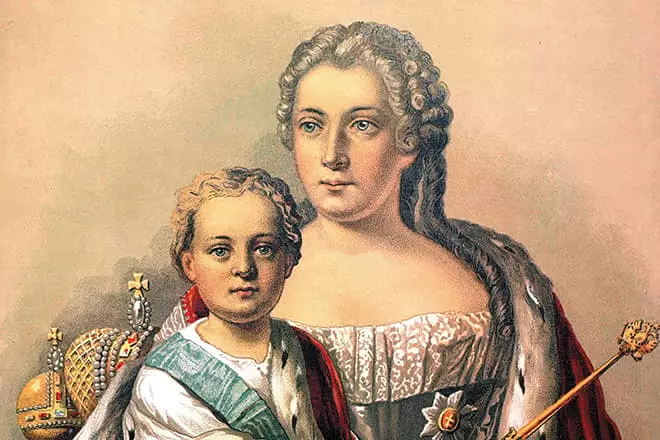
The regency of the Biron was outraged by the parents of the little emperor, did not have to moral at the courtyard and in the army, and therefore it lasts only a month. In November 1740, Regent was arrested and sent to the link to Tobolsk province.
In July 1741, Anna gave birth to daughter Catherine. The government in the subsequent children gave generic names.
Opala
Palace coups were the usual phenomenon in the era of the formation of Russian statehood. Anna received power in a similar way, and she lost her. On November 25, 1741, the intrigues of the French ambassador of Shetardi and the Swedish envoy Nolken were fruitful - there was a coup, erected to the throne Elizabeth Petrovna. Anna Leopoldovna family was arrested and intended to send to Riga.
But subsequently, the overthrown sovereign, her husband and children (Elizabeth, Alexey and Peter were born in the link) wandered over long-term strikes until they were left to live in the territory of the modern Arkhangelsk region, in Khlemogors.
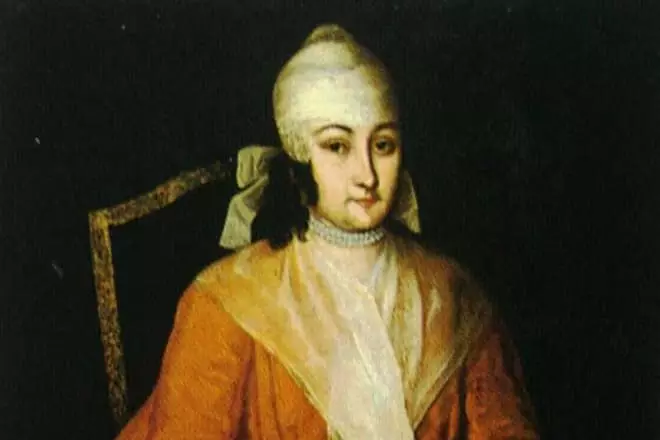
The firstborn of John took away, for more than two decades he spent in imprisonment in secret prisons and the Shlisselburg fortress, and in 1764 he was killed.
The fate of the rest of the children also developed sadly: spent 40 years in imprisonment and in the 1780s were sent to Denmark, although they received personal pensions from the Russian government. The daughter of Catherine as a result of injury grew mentally retarded, but lived longer than all. Elizabeth lost his mind after separation with her beloved. Peter and Alexei Liberation did not bring joy, died, not leaving the offspring.
Death
The cause of the death of Anna Leopoldovna in 1746 was the maternity mortar. The Empress Elizaveta Petrovna reacted with respect to the well-improved relative: the body was taken to St. Petersburg and were buried with the honors in the Blagoveshchensk Church of the Alexander Nevsky Lavra.Memory
Painting:
- 1746 - "Anna Leopoldovna". Louis Karavak
- "Anna John and Anna Leopoldovna for a walk" (Author unknown)
- Between 1733 and 1739. - "Princess Anna Leopoldovna". A. Matveyev
- 1736 - "Great Princess Anna Leopoldovna". I. Vekhind
- 1741-1746 - "Portrait of Anna Leopoldna in an orange dress." I. Vishnyakov
Literature
- 2001 - "Yard of Russian emperors in his past and present.". E. Volkov
- 2012 - "Anna Leopoldna". I. Kurukin
